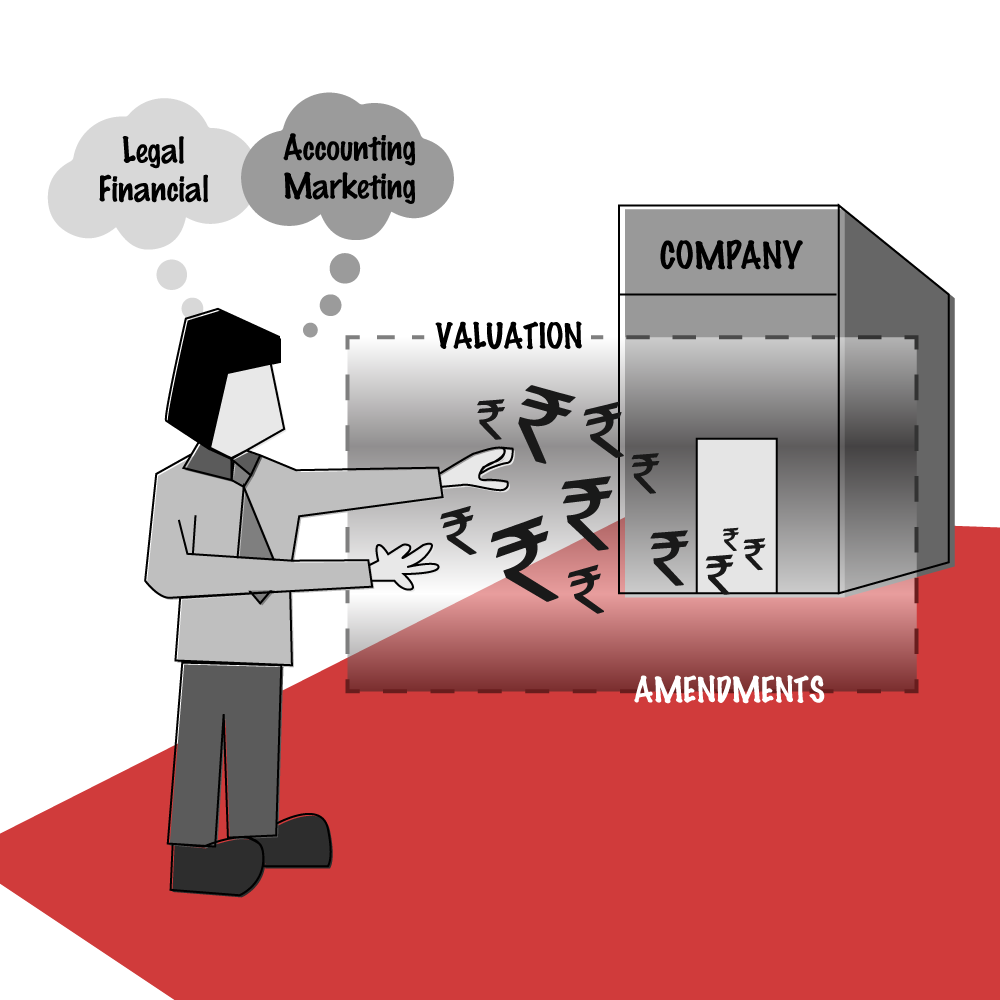

The Latest
On 21 st November 2022, the Ministry of Corporate affairs issued a notification amending the Registered Valuers and Valuation Rules. In this background, a look into the niche area of valuation and its (amended) rules.
Valuation
Simply put, valuation is the process of evaluating or estimating the monetary worth of either an asset or business or company or shares. Valuation is a relatively new concept in India. Usually, the valuation process is executed by professionals such as Chartered accountants, Cost accountants, Company Secretaries.
Valuation is done with respect to land & building, plant & machinery and financials assets – share, debentures, goodwill etc.
Hitherto, section 34AB of the Wealth Tax Act under the Income Tax law was the only governing statutory provision with respect to valuation and valuers in India. Valuation / valuers were largely ungoverned.
Further, lack of structured, standardized method of computation resulted in subjective evaluation of assets / entities. It was necessary to obtain correct value of assets which was always not the same as market value of assets.
All that changed with the introduction of section 247 of the Companies Act 2013 and the Rules which became effective from 18 th October 2017. The section and the rules laid down the eligibility, qualifications and the manner, terms and conditions subject to which valuation shall be carried out.
Section 247 of the Companies Act 2013 made it mandatory for persons with requisite qualification, experience and registered as a valuer to undertake valuation where it is required under the Act.
Valuation from a registered valuer was made mandatory for a host of requirements under various Acts. To name a few –
Methodology used in valuation
Valuers / Registered Valuers – Then and now
Often, valuers and surveyors are mistaken to be the same. Their functions are different. Valuation involves evaluating and estimating the economic value of any property – movable or immovable, while surveying involves estimating the physical condition or state in which a property is in. While valuers can be surveyors, the reverse is not always true.
The Companies Act 2013 introduced the concept of “registered valuer” vide section 247 of the Act. Simultaneously, the Companies (Registered Valuers and Valuation) Rules 2017 was introduced. The Section and the Rules lay down the framework governing the valuers including but not limited to their eligibility, qualifications, code of conduct etc.
These Rules got amended in November 2022. A look at the Companies (Registered Valuers and Valuation) Amendment Rules 2022.
Companies (Registered Valuers and Valuation) Amendment Rules 2022
Highlights of amendments:
Amendment to the 2017 Rules were brought about in 2022 to provide express clarity on functioning of registered valuers especially on partnership firms and companies.
Valuation is a multi-disciplinary function requiring registered valuers to have knowledge all areas impacting business – legal, financial, accounting, market etc. The role of valuation in estimating value of a business is felt most now than ever before with Indian business being on par with global businesses, stressed assets on the rise back home and international methodology of valuation being adopted. Only an effective regulatory framework for valuation and registered valuers will ensure valuation is an important exercise in due diligence and not mere certificate issued to complete compliance. The amended rules 2022 is a step-in furtherance of that objective.
For text of Companies (Registered Valuers & Valuation) Amendment Rules 2022: